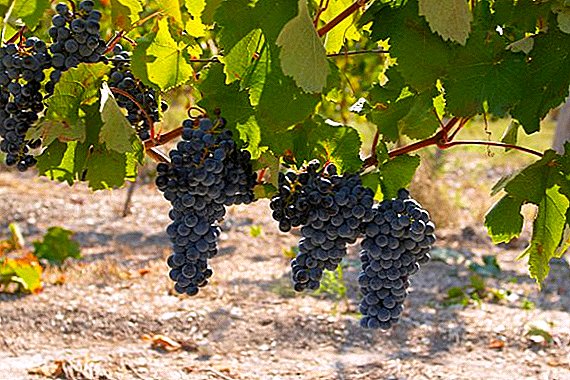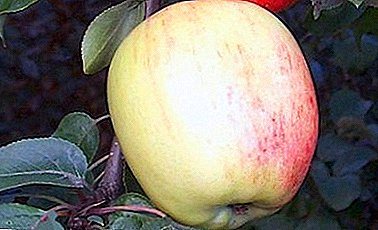 Often people are faced with such a problem as the absence of eggs in quails. This phenomenon can be caused by many reasons.
Often people are faced with such a problem as the absence of eggs in quails. This phenomenon can be caused by many reasons.
In order to avoid this, it is necessary to become familiar with the factors that affect egg laying in quails, and possible solutions to problems.
How many quails rush
The reason why quails are so popular is that they start to rush early enough. Of course, indicators may vary depending on the species, breed, conditions and other factors. But in general, the birds ripen to wear eggs for 35-40 days of life.
Did you know? Quail eggs help fight cancer cells, thanks to the substance lysozyme!
After the beginning of the period of wearing the first 25-30 days, the number of eggs averages 8-10 eggs. Soon the number increases to 25-30 per month and approximately to 300-320 per year.  The peculiarity is that this species of birds is carried along a certain cycle - from 4 to 6 days of carrying, after - a break. Therefore, if there is no product for several days - this is absolutely normal.
The peculiarity is that this species of birds is carried along a certain cycle - from 4 to 6 days of carrying, after - a break. Therefore, if there is no product for several days - this is absolutely normal.
As for the age of the hen, the laying downturn falls on the 10th month of life, but it passes not abruptly, but gradually. After the 30th month of life, egg-laying ceases completely. Therefore, it is recommended to replace older birds with younger ones.
Why quit quit ceasing
A variety of factors can affect the ability of the birds to rush, and each of them has its own characteristics and solutions or prevention.
You will probably be interested to know how much a quail egg weighs and how to break quail eggs correctly.
Bad conditions of detention
Most often, it is the unsatisfactory conditions of detention that lead to such negative consequences, since the bird is constantly experiencing stress and discomfort, and this in turn greatly affects its state of health.  We can identify the following reasons associated with poor conditions:
We can identify the following reasons associated with poor conditions:
- drafts. In general, this can lead not only to diseases, but also to a decline in productivity. The decision will be to make the room non-airy.
- poor coverage. With too bright and long light (more than 17 hours), they experience stress, and this causes a decrease in the number of eggs. If the light is too dark, there will also be a bad result, as the birds rush only during daylight hours, which is now often recreated with the help of artificial lighting. The solution will be to create the optimal version of the light - it is from 6 to 23 hours.
- violation of standard temperature and humidity. Often, when the weather changes, the temperature and humidity in the room change, but this should not be allowed, because with a sharp change of these indicators the birds experience stress. The solution will be to keep the same temperature throughout the year, and also not to allow the humidity to drop to 40% or above 70%.
- not enough space. The tightness in the cage can lead not only to the bad mood of the bird, but also to aggressiveness, in such conditions there will not be a high level of egg production. The solution will be to choose a cell size where 1 square decimeter of space will be allocated for each individual.
Important! When breeding quail from an incubator, it is necessary to create a transitional regime from +30 to +20WITH!
 Thus, we can conclude that very often unsatisfactory living conditions not only cause harm to the bird itself, but also reduce the level of egg production.
Thus, we can conclude that very often unsatisfactory living conditions not only cause harm to the bird itself, but also reduce the level of egg production.Read about how to make a cage for quails with your own hands.
Wrong diet
Nutrition is the basis of life, so you need to carefully approach the choice of the diet of poultry. Most often, owners of quails are faced with a decrease in egg-laying due to switching to another feed. This species has a very sensitive digestive system, and therefore is under stress when changes in the menu. To avoid this, it is recommended to add a new feed gradually, mixing it with the old one.
Overeating can also cause a decrease in the desired result from the bird. Therefore, they must be fed 3 times a day, preferably at the same time, 1 tablespoon per individual.  The ration itself usually consists of mixed feed or homemade, ground mixture of cereals. They can also be given vegetables, cereals, and greens. It is necessary to monitor the large amount of protein in the poultry feed, since it is precisely its absence that is manifested in a decrease in egg production.
The ration itself usually consists of mixed feed or homemade, ground mixture of cereals. They can also be given vegetables, cereals, and greens. It is necessary to monitor the large amount of protein in the poultry feed, since it is precisely its absence that is manifested in a decrease in egg production.
Learn how to feed quails and what feed should be used.
Age
Of course, aging leads to a decrease not only in overall productivity, but also in a decrease in the number of eggs. After 10 months of life begins a gradual decline, which ends at 30 months.
The only solution to this problem can only be the replacement of birds for younger ones. 
Stress after transportation
Often, all previous indicators are precisely the cause of stress, which in turn leads to a decrease in performance. One of the most common stress factors is the transportation of birds (both young and more adult individuals).
Did you know? In 1990, quails were the first birds that were born in space from an egg with a germ!
There is no solution to this problem, since the birds need 2-3 weeks for development in a new place and only after this will egg production be restored.
Moult
During the molting period, the birds completely cease to trot, and this is absolutely normal. The period of molting falls on the 4th week of life and then according to the season. The first molt replaces the plumage of a young bird with a more dense plumage of an adult. 
Diseases
Various infections often manifest themselves by a decrease in egg production or a change in the appearance of the eggs. As a rule, it is beriberi, which is associated with malnutrition.
Preventive measures
In order to avoid the harmful effects of reducing the number of eggs in quails, it is recommended to adhere to the following rules:
- Regularly clean the cells as they get dirty.
- Change the water and monitor its quality.
- Adhere to the same temperature and humidity.
- Provide the necessary conditions, a sufficient amount of space.
- Carry out a routine inspection of quails by a veterinarian.
- Provide nutrition for birds, in which there will be enough vitamins and protein.
We recommend to learn how to improve egg production quails.
Thus, we can conclude that a decrease in egg production in quails can be caused by many reasons. Sometimes, this is part of a natural process, as in the case of molting or aging, but living conditions, stress and other factors can also lead to negative consequences. Therefore, it is recommended to carry out preventive measures in order to avoid such a phenomenon.
Video: Causes of poor quail egg production
Reviews














